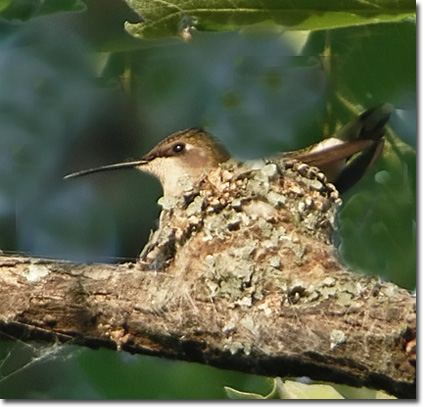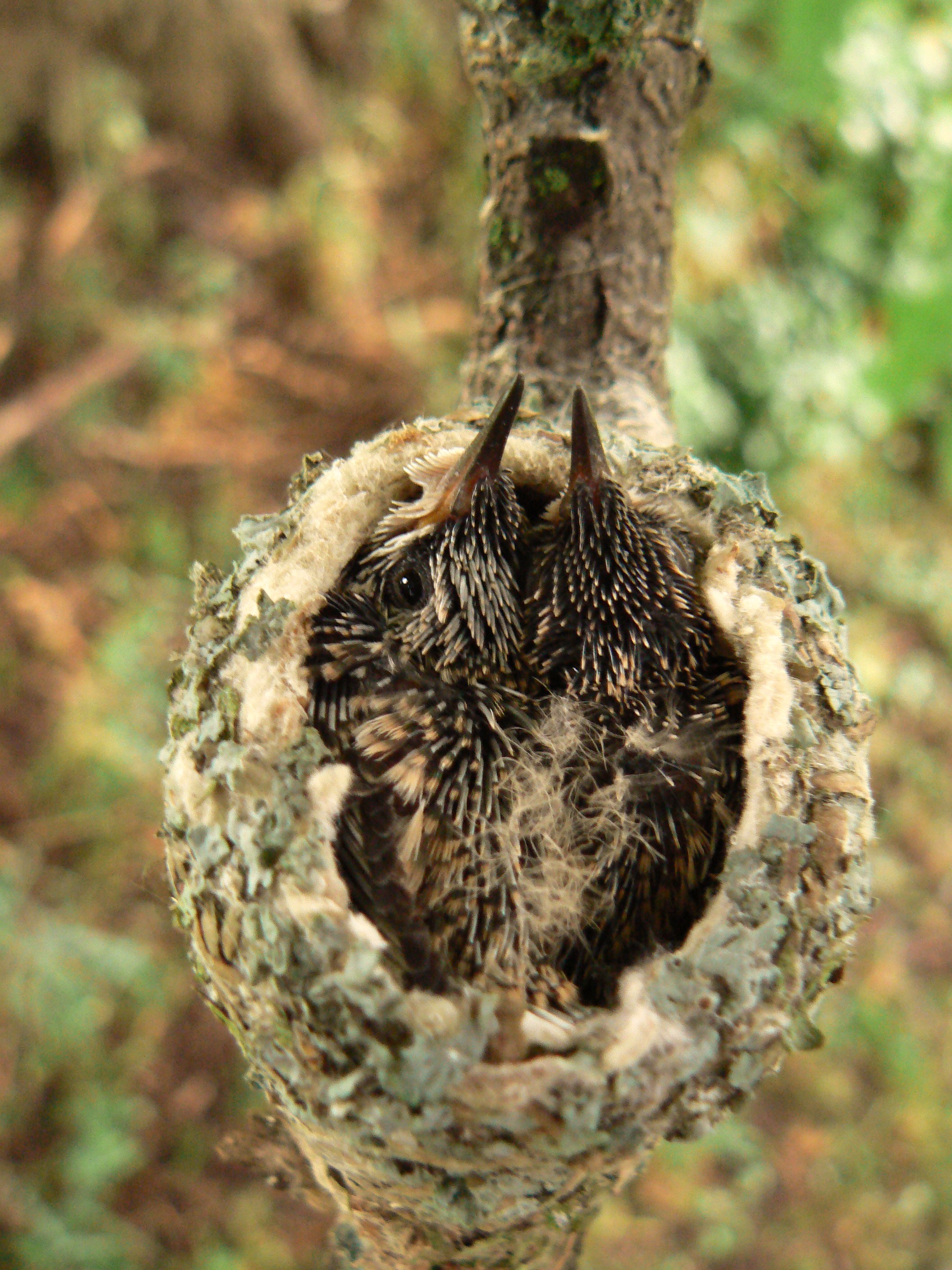|
Reproduction "Starting a Family"
|

|
Courtship From March to May, after a long migration north, the Ruby-throated Hummingbirds begin mating and producing offspring. The breeding process begins with courtship. Courtship begins when the male hummingbird returns to his breeding zones and establishes his territory before the females arrive. Once the females arrive, the males put on an acrobatic show in attempt to impress and attract a mate. They fly back and forth in a perfect arc, beating their wings at an astonishing rate of 200 times per second!! Next the female hummingbirds begin the task of building their nests. Their choice nesting sites consist of narrow branches of trees (specifically Alders) that are located near water. These nests are usually about 1 1/2 inches across and contain plant material and soft mosses and lichen which are often times held together by the silk from spider webs. The average clutch size is 1 to 2 eggs, which are about the size of peas. The female hummingbird sits on the nest for about 60 - 80% of the day, the rest of the day is spent finding food. After a 16 day incubation period, the baby Ruby-throats hatch. The mother takes care of the babies until they can feed themselves, and then she sets off to mate again (females usually produce 2 broods per season). The male plays no role in raising the young, but instead leaves after the eggs have hatched to find another mate. This may seem like a heartless act by the father, but it instead benefits the female and young. Not having the male feeding in the same area, decreases the competition for food.
|



